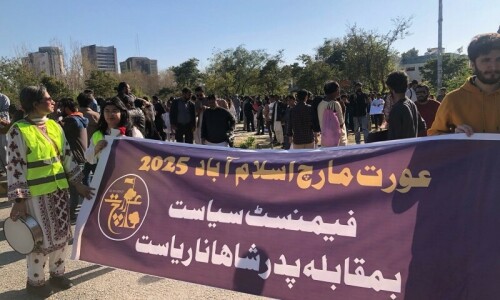ROME: Expanding trade in agricultural products is key to alleviating world hunger, but only if open trade policies do not endanger food security, the UN food agency said in a report released on Wednesday.
Trade affects all dimensions of food security: food availability, access, utilisation and stability, the report by the Food and Agriculture Organization (FAO) said.
“The eradication of global hunger by 2030 is a key goal in the new post-2015 sustainable development agenda — and trade is one of the means for achieving this goal,” the FAO said.
World trade in food and agricultural products, which has grown almost three-fold in value over the past decade, is set to continue to expand with regions such as Asia, North Africa and Middle East increasing net imports, while others like Latin America boosting exports, the report said.
“The challenge has therefore become one of ensuring that the expansion of agricultural trade works for, and not against, the elimination of hunger, food insecurity and malnutrition,” stated the report The State of Agricultural Commodity Markets 2015 (SOCO).
It aims to show the link between trade and food security and reduce the polarised views on the subject providing guidance on government trade policy, the FAO said.
“Trade affects many of the economic and social variables that ultimately determine a population’s food security and nutrition status — including growth, incomes, poverty levels, food prices and government budgets,” it said.
While trade in itself is neither a threat nor a panacea, it does pose challenges and risks that need to be considered in policy decision-making.
The report cited such risks as relying on the global marketplace for imported food which could see sudden price hikes and also leave the importing country vulnerable to actions by trading partners and short-term market shocks.
Still, the report concluded there is no “one size fits all” for a trade policy that supports food security. It suggests that trade and related government policy will differ by countries and will change over time as their economies develop.
Published in Dawn, December 10th, 2015













































